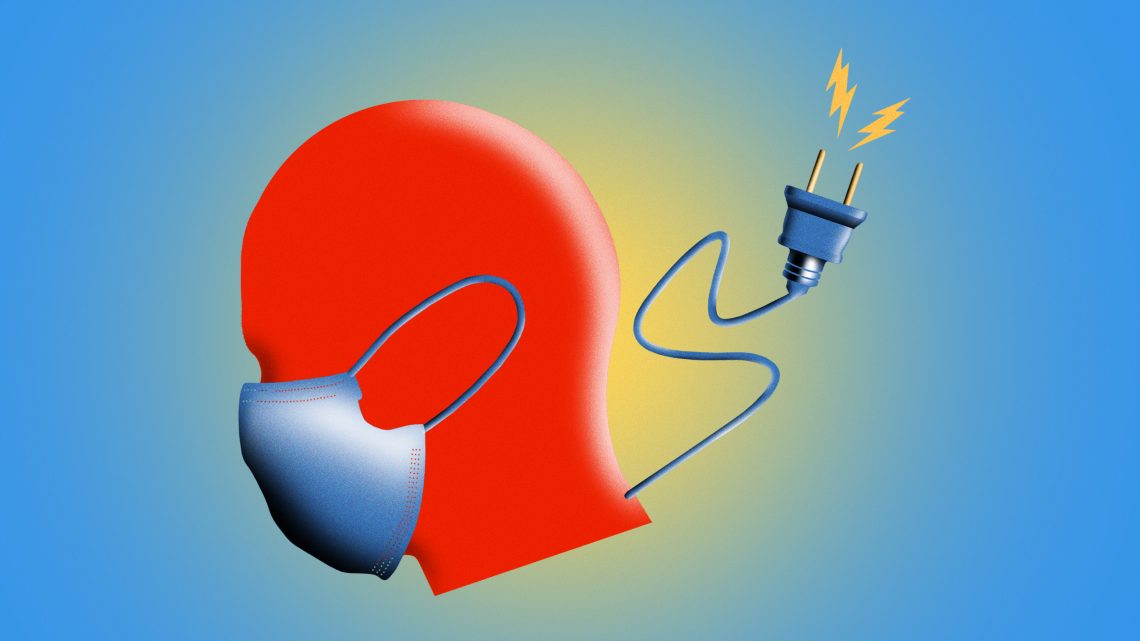
Quarantine Sucks for Extroverts, but It’s Not Fun for Introverts Either
April 1, 2020This article originally appeared on VICE Canada.
Like many young people, Franny McCabe-Bennett works several different jobs. She’s a producer, bartender, actor, and music teacher. In between gigs she puts a lot of value on being around family, friends, and romantic partners.
As an extrovert, McCabe-Bennett gets energy from these interactions. They give her a sense of security and help deal with her day-to-day anxieties. But the social distancing measures in place to slow the spread of the coronavirus has eliminated her normal routine, leaving McCabe-Bennett removed from important people in her life and the normal structures she’s come to rely on. Acclimatizing has been a struggle.
“Struggling looks like panic attacks, not being able to leave my house for a 15-minute socially distant walk around the block, and emergency Zoom therapy sessions,” McCabe-Bennett told VICE. “It’s been an extremely difficult adjustment.”
With COVID-19 mitigation measures like social distancing and the closure of non-essential businesses expected to last for months, introverts and extroverts have been modifying their lives to deal with our new reality. That’s meant devising different strategies for getting by. People have recreated their social interactions digitally with online happy hours, dance clubs, and even orgies. Some have dug into home workout routines, started knitting, or—god forbid—downloaded TikTok. Others (read: me) are spending a lot of time sitting down in the shower and wondering when all of this will be over.
According to Sarah Lang, a certified leadership coach and an instructor at the University of Toronto, both introverts and extroverts should be easy on themselves and stay attune to their needs as they transition into this new time period.
“I’d really lean in for self-compassion right now,” said Lang. “When there is so much stress in the outer world it’s really easy to internalize it, but you have to take into account where you’re at... Some people are using this moment to pause and recalibrate. Others are clear on their actions and what they want to pursue. There is no right or wrong. It depends on the energy people have and being honest enough to recognize what’s necessary for them.”
Lang says for extroverts that may mean actively communicating with people who give them energy and participating in activities with their networks. For those who are having trouble functioning at all, she suggests creating a minimum baseline of activities.
“That can be 20 minutes of physical activity, five minutes of meditation, or just making sure you answer your most important emails. Find a collection of daily activities you can hold yourself accountable to. Don’t over complicate it.”
Under normal circumstances MMA Instructor and model Diego Lopez frequently dates and spends a lot of time around friends and colleagues at his gym. Lopez, an extrovert, has been substituting those interactions with active DMs and daily bodyweight workouts. The goal is to carry on some of the actions that made him happy before social distancing.
"I feel like I’m doing pretty well emotionally," said Lopez. “I know what behaviors make me feel worse and what behaviors make me feel better. Everyday I’ve been working out, showering, and putting on normal clothes...I make little competitions with myself to see how many days in a row I can keep up positive routines and find ways to hold myself accountable to that.”
Lopez lives with his best friend, which has allowed for quality, face to face, socializing while still following the guidelines. The situation has also given the duo more time to pursue creative endeavors like their podcast, which is currently doing special quarantine episodes. A close friend and a creative outlet at home have felt like a godsend. But not everyone has been as fortunate in the time of social distancing.
In 2018 comedian and performer Lane Moore wrote How to be Alone: If You Want To, and Even If You Don't. The book of essays falls somewhere between memoir and self-help, documenting the author's experience leaving behind abusive relationships with family and former partners. How to be Alone also offers readers tips for finding contentment autonomously. Despite identifying as an introvert and literally writing the book on being by yourself, Moore has been finding the quarantine challenging. She had planned to spend the bulk of her year on the road performing her stage show Tinder Live and promoting the book. It is how she makes the majority of her income but is also her preferred form of socialization. Losing out on both things for the foreseeable future is a struggle.
"We think of everything on a really rigid binary. People assume that introverts never leave the house and extroverts are at a rave every night. But that’s just not true," said Moore. "I identify more as an introvert and can be socially anxious but performing and creating art is how I process my emotions. It’s one of my primary sources of joy and I miss it."
To compensate Moore has been hosting How to be Alone themed live streams on Twitch where she can commiserate with viewers and people can share thoughts on how to make the most of this time period. The stream has been a haven for people who don't necessarily have family or a romantic partner to lean on during quarantine.
"The first day of the streaming shows I got super dressed up. And it was great. The next day I got hit with this wave of depression,” said Moore. “Getting on live stream and being the strong one felt really hard but I asked myself...what if I don’t have to be that? And so I was just honest about how I felt really depressed and really anxious. People were so supportive. One of the good things about all this is how open people have been about their feelings.”
On the stream Moore also offers practical advice. She’s been a huge advocate for sending voice memos to people. They feel more intimate than texting but are less of a commitment than a phone call or video conference. She’s also championed fostering or adopting animals. Moore has been extremely grateful for her tiny rescue dog who has doubled as both loving companion and happy distraction while away from other people; she gets her alone time, but still has something to cuddle.
Loneliness has been a recurring theme for many during the pandemic. Even people who require a lot of alone time for energy have been experiencing a monkey’s paw wish, like telling someone they love ice cream then only being allowed to eat ice cream for the foreseeable future. For Second City Performer Jillian Welsh an adequate amount of alone time is necessary to recharge. In theory, the quarantine looks a lot like her normal practices. The reality of that situation has felt much different.
"I used to long for self isolation but now that I’m supposed to do it, it feels different,” said Welsh. “I realized that there are certain quiet activities I really love doing around people. I love my brooding alone time but I’m used to balancing that time by being in my community.”
Another challenge for Welsh has been navigating her introverted nature with her partner who is an extrovert. Sharing a small Toronto apartment with greatly different needs can be difficult. Working around that has required extreme honesty.
“We’ve got great communication but we’ve had to figure out how to navigate things. Like, how do you have alone time when you’re not alone? But that said I’m grateful to have my physical human around. When we’re scared or uncertain it’s great to have someone to talk to and hold.”
Trying to make the most of the situation Welsh has also been using the time to evaluate what’s important in her life and the things she is grateful for. As our relationships with ourselves and other people continue to shift during this time period, that idea feels important. Even if we can’t have it now, it’s important to think of the lives we want to create when all of this settles back to normal.


